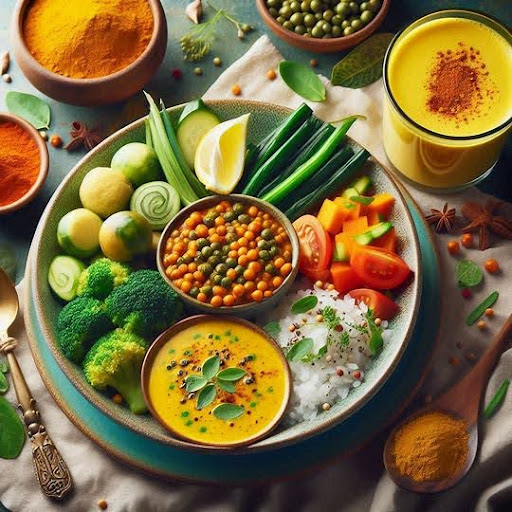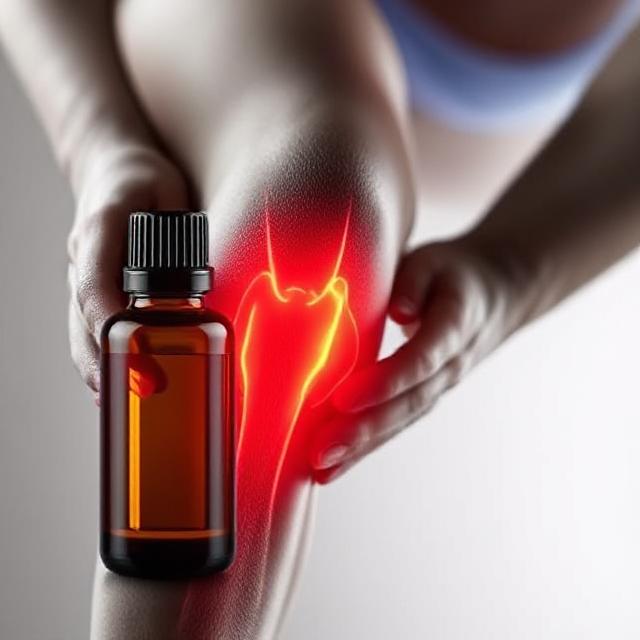Ayurveda approach to neck pain

Ayurveda approach to neck pain
Grivashool is a term in Ayurveda that refers to neck pain, derived from griva meaning neck and shool meaning pain. Neck pain can result from various factors such as dosha imbalances, poor posture, stress, or underlying health conditions. Ayurveda addresses Grivashool through a holistic approach that includes dietary recommendations, lifestyle changes, herbal remedies, and therapeutic practices.
Causes of Grivashool in Ayurveda:-
Vata Dosha imbalance:
Can lead to dryness, stiffness, and sharp, shooting pains in the neck.
Often associated with overexertion, stress, and anxiety.
Kapha Dosha imbalance:
Can cause heaviness, swelling, and dull, aching pain.
Often related to sedentary lifestyle, poor posture, and accumulation of mucus.
The connection between gut health and neck & back pain is an emerging area of research that highlights the complex interplay between various body systems. Here are some key points on how gut health can influence neck & back pain:
-
Gut inflammation: Poor gut health can lead to increased intestinal permeability (leaky gut), allowing harmful substances to enter the bloodstream and trigger systemic inflammation.
-
Systemic inflammation: Chronic inflammation can affect various parts of the body, including the back, neck, leading to pain and discomfort.
-
Gut dysbiosis: An imbalance in the gut microbiome can affect the immune system and inflammatory responses, potentially leading to musculoskeletal pain, including back neck pain.
-
Nutrient deficiency: Poor gut health can impair nutrient absorption, leading to deficiencies in essential vitamins and minerals that support musculoskeletal health, such as vitamin D, calcium, and magnesium. These deficiencies can contribute to muscle and bone pain.
-
Nerve connection: The gut and the spine are connected through the nervous system, particularly the Vagus Nerve and the enteric nervous system. Issues in the gut can cause referred pain to the spine through these neural pathways.
-
Stress and anxiety: Stress and anxiety can impact both gut health and neck pain. Poor gut health can exacerbate stress levels, and chronic pain can contribute to anxiety, creating a feedback loop that affects both the gut and the neck.
Diet can play a significant role in improving gut health by managing and potentially alleviating and reducing neck pain by promoting overall health, reducing inflammation, and providing essential nutrients for muscle and joint health.
Some dietary recommendations to help improve neck pain:
Anti-inflammatory foods like
Fruits and vegetables -- berries (blueberries, strawberries), leafy greens (spinach, kale), broccoli, bell peppers, tomatoes, citrus fruits (oranges, lemons).
Healthy fats like fatty fish (salmon, mackerel, sardines), nuts and seeds (walnuts, flaxseeds, chia seeds), olive oil, avocados.
Whole grains, like oats, quinoa, brown rice, whole wheat.
Spices and herbs like turmeric (curcumin), ginger, garlic.
Foods rich in essential nutrients like
Calcium and Vitamin D from dairy products (milk, cheese, yoghourt), fortified plant-based milk (almond, soy), leafy greens (kale, bok choy), fish (salmon, sardines), eggs.
(Disclaimer: Get your thyroid gland checked first, before deciphering your levels of soy-intake).
Magnesium from nuts and seeds (almonds, sunflower seeds), legumes (black beans, chickpeas), whole grains (brown rice, quinoa), dark chocolate.
Omega-3 fatty acids from fatty fish, flaxseeds, chia seeds, walnuts. algal oil (plant-based omega-3 supplement).
Hydration from water (ensures adequate hydration to keep muscles and joints lubricated and functioning properly and herbal teas (green tea, ginger tea, and turmeric tea can provide additional anti-inflammatory benefits).
Avoiding inflammatory foods like processed foods, fast food, sugary treats; refined carbohydrates like white bread, pastries, sugary cereals; trans fats and saturated fats like fried foods, margarine, processed meats; excessive sugars like sugary drinks, candies, desserts.
Some lifestyle tips to complement eating habits:
Regular exercise -- Engage in regular physical activity, including exercises that strengthen the neck and back muscles.
Good posture -- Maintain proper posture to reduce strain on the neck.
Ergonomics -- Ensure your work and home environments support good posture and reduce neck strain.
Stress Management -- Practise stress-reducing activities such as yoga, meditation, and deep breathing exercises.
Herbal remedies – Always consult an Ayurveda Vaidya doctor for appropriate remedies.
Therapeutic practices:
Abhyanga (oil massage) will help. Use Mahanarayan Oil for muscle stiffness and pain; Karpooradi Oil for a cooling effect and to reduce inflammation; Ashwagandha Bala Oil to strengthen muscles and alleviate pain.
Panchakarma (detoxification) – Nasya, which is administration of medicated oils through the nasal passages can help in relieving neck pain; Basti, medicated enemas to balance Vata and reduce pain. (Disclaimer: Please consult an Ayurveda Vaidya doctor for these treatments).
Article by
Dr. Pankaj Chansarkar
dr@doctorpankaj.com




